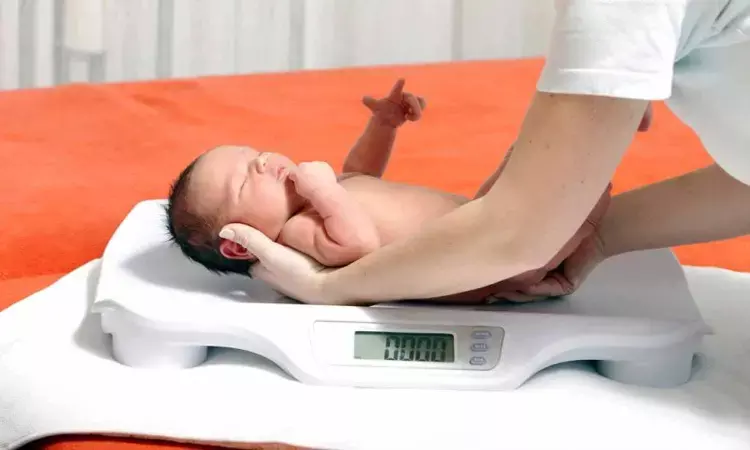- Home
- Medical news & Guidelines
- Anesthesiology
- Cardiology and CTVS
- Critical Care
- Dentistry
- Dermatology
- Diabetes and Endocrinology
- ENT
- Gastroenterology
- Medicine
- Nephrology
- Neurology
- Obstretics-Gynaecology
- Oncology
- Ophthalmology
- Orthopaedics
- Pediatrics-Neonatology
- Psychiatry
- Pulmonology
- Radiology
- Surgery
- Urology
- Laboratory Medicine
- Diet
- Nursing
- Paramedical
- Physiotherapy
- Health news
- Fact Check
- Bone Health Fact Check
- Brain Health Fact Check
- Cancer Related Fact Check
- Child Care Fact Check
- Dental and oral health fact check
- Diabetes and metabolic health fact check
- Diet and Nutrition Fact Check
- Eye and ENT Care Fact Check
- Fitness fact check
- Gut health fact check
- Heart health fact check
- Kidney health fact check
- Medical education fact check
- Men's health fact check
- Respiratory fact check
- Skin and hair care fact check
- Vaccine and Immunization fact check
- Women's health fact check
- AYUSH
- State News
- Andaman and Nicobar Islands
- Andhra Pradesh
- Arunachal Pradesh
- Assam
- Bihar
- Chandigarh
- Chattisgarh
- Dadra and Nagar Haveli
- Daman and Diu
- Delhi
- Goa
- Gujarat
- Haryana
- Himachal Pradesh
- Jammu & Kashmir
- Jharkhand
- Karnataka
- Kerala
- Ladakh
- Lakshadweep
- Madhya Pradesh
- Maharashtra
- Manipur
- Meghalaya
- Mizoram
- Nagaland
- Odisha
- Puducherry
- Punjab
- Rajasthan
- Sikkim
- Tamil Nadu
- Telangana
- Tripura
- Uttar Pradesh
- Uttrakhand
- West Bengal
- Medical Education
- Industry
Prenatal exposure to Benzodiazepines may decrease birth weight: JAMA

Norway: Children born to mothers exposed to benzodiazepines or benzodiazepine like-hypnotics in pregnancy had a slightly lower birth weight and were at risk of preterm birth, according to a recent study in the journal JAMA Network Open.
Anxiety and sleep disorders are common during pregnancy. For the treatment, about10% to 26% of pregnant women are prescribed benzodiazepines or benzodiazepine-like hypnotic drugs (z-hypnotics). These drugs when used during pregnancy cross the placental and blood-brain barrier and may be harmful to fetal growth and development.
Anders Huitfeldt, University of Oslo, Oslo, Norway, and colleagues determined whether exposure to benzodiazepines or z-hypnotics in pregnancy is associated with greater risk of negative immediate pregnancy outcomes compared with non-exposure.
This questionnaire-based cohort study including 82 038 pregnancies used data from the Norwegian Mother, Father and Child cohort study (MoBa). Pregnant women were recruited from all over Norway from 1999 and 2008. The study included women who completed 3 questionnaires, twice during pregnancy and once 6 months after delivery. Data analyses were conducted from September to November 2019.
The participants were randomized to receive benzodiazepines or z-hypnotics during pregnancy, characterized in terms of any exposure, timing (ie, early, middle, or late), and duration of exposure.
The main outcomes were gestational age at delivery, risk of preterm delivery, birth weight, birth weight relative to gestational age and sex, risk of being small for gestational age, head circumference, Apgar score less than 7 at 5 minutes, and risk of neonatal respiratory distress.
The MoBa study included 114 234 mother-child dyads. This analysis of MoBa data includes 82 038 singleton pregnancies among 69 434 unique women. Mean (SD) maternal age was 30.2 (4.5) years, and 37 641 pregnancies (45.9%) were in primiparous women.
Key findings of the study include:
- Exposure to benzodiazepines or z-hypnotics was reported in 679 pregnancies (0.8%).
- After adjusting for all measured baseline and postbaseline confounders, benzodiazepine or z-hypnotic use during pregnancy was associated with lower birth weight (mean difference, −79.3 g), lower gestational age at birth (mean difference, −2.1 days), and higher risk of preterm birth (risk ratio, 1.41).
- There was no significant association of exposure to benzodiazepines or z-hypnotics with the child's birth weight relative to gestational age and sex (z score), or any of the other immediate birth outcomes.
"These findings suggest that the magnitude of the association of exposure to benzodiazepines or z-hypnotics with gestational age is not necessarily clinically significant. The absence of an association of exposure to benzodiazepines or z-hypnotics with z score for birth weight relative to gestational age and sex suggests that association of exposure to benzodiazepines or z-hypnotics with birth weight could be explained by earlier delivery rather than impaired intrauterine growth," concluded the authors.
The study, "Associations of Maternal Use of Benzodiazepines or Benzodiazepine-like Hypnotics During Pregnancy With Immediate Pregnancy Outcomes in Norway," is published in JAMA Network Open.
DOI: 10.1001/jamanetworkopen.2020.5860


